Kindly open the website on a laptop or desktop, as the mobile version is currently under construction.

Trade Unionism and Inequality in the EU: Exploring the Impact of Market Integration
A deep dive into how trade unions influence income inequality in Europe's integrated market
Mohar Chaudhuri
4/2/20203 min read
In an era where economic inequality continues to rise while trade union participation diminishes across the developed world, a crucial question emerges:
"Do trade unions still effectively combat income inequality, particularly in highly integrated markets like the European Union?"
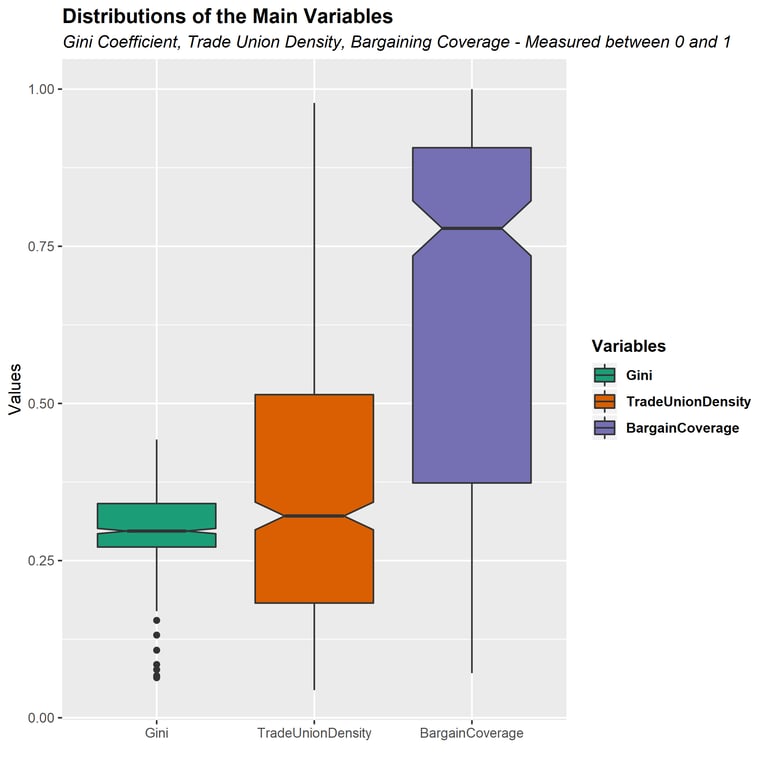

This question formed the core of a fascinating econometric research project conducted by Mohar Chaudhuri, Paul Melki, and Mira Rahal at the Toulouse School of Economics. Their study provides
valuable insights into the complex relationship between labor institutions and inequality in the context of market integration.
The study aims to understand whether trade unions still serve as effective counterweights to inequality in the European Union, and how market integration might influence this relationship. This question is especially timely as we witness both rising inequality and declining union membership across developed economies.
The core hypothesis is that market integration might be weakening trade unions' ability to curb inequality by altering the traditional balance between labor and capital.
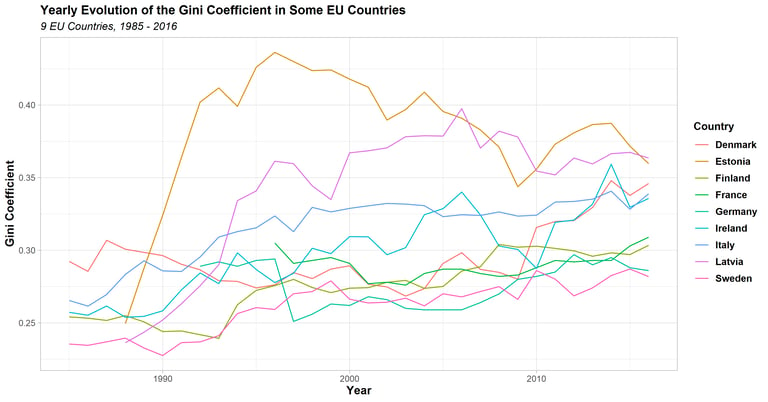

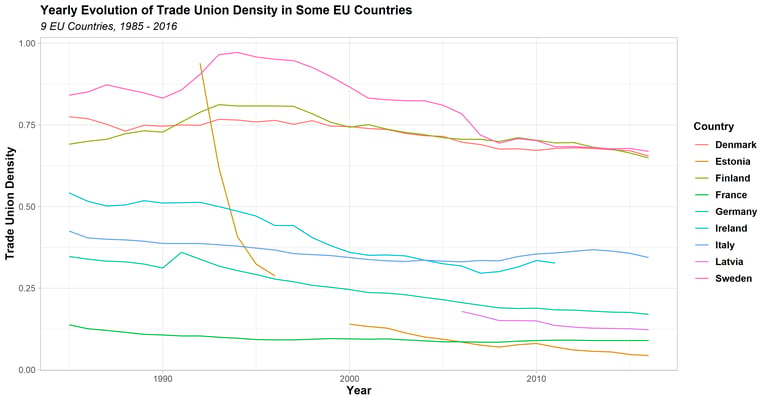

The study employed a fixed-effects econometric model analyzing panel data from 22 EU-OECD countries over a 31-year period (1985-2016).
Dependent variable:
Key explanatory variables:
Controls:
Integration variable:
Inequality measured by the Gini coefficient on disposable income (post-tax)
Trade union density and collective bargaining coverage
Unemployment rate, GDP per capita
EU membership dummy variable

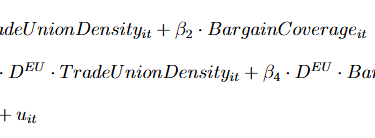
where β1 and β2 will be interpreted as the impact of TradeUnionDensity and BargainCoverage respectively on the Gini coefficient, ceteris paribus, before the integration in the common EU market, while β1 + β3 and β2 + β4 will give the impact of TradeUnionDensity and BargainCoverage respectively on the Gini coefficient after market integration. Our model will thus allow us to achieve our goal of studying the impact of the power of trade unions on inequality, taking into account the integrated market environment.
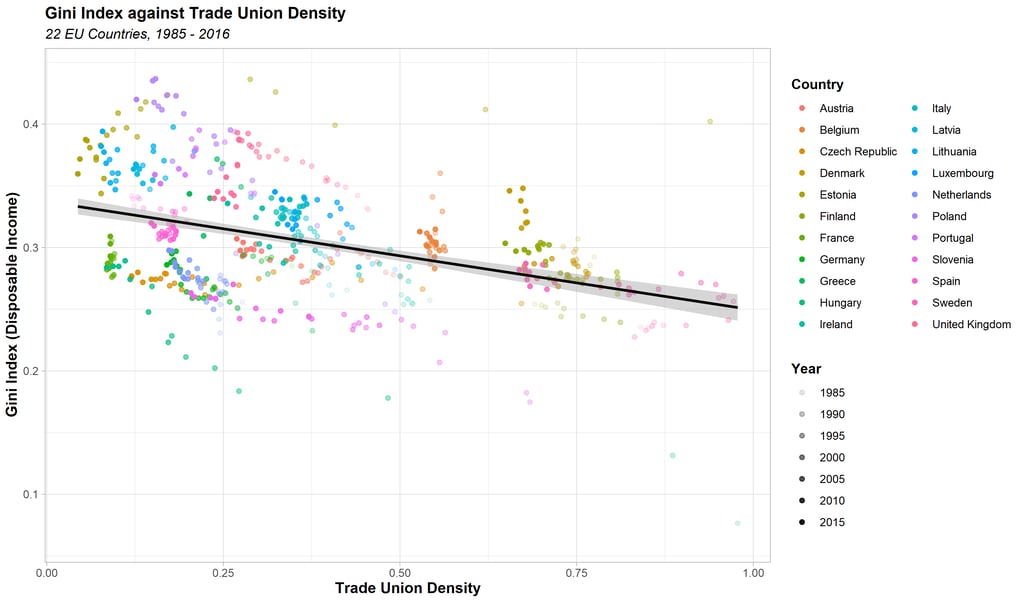

The study found evidence of a small but statistically significant negative relationship between trade union density and inequality. In simpler terms, higher union membership rates are associated with lower inequality, even after controlling for country-specific factors.
The positive coefficient on the interaction term between trade union density and EU membership suggests that integration into the common market may have weakened unions' effectiveness in reducing inequality.
Unlike trade union density, the relationship between collective bargaining coverage and inequality was less clear in the fixed-effects models, showing non-significant positive coefficients.
The findings suggest several important implications for both trade unions and policymakers. Despite their weakening effects in integrated markets, trade unions still matter and continue to play a meaningful role in reducing inequality, suggesting they remain relevant institutions in modern economies. However, as market integration reduces unions' economic leverage, they may need to adapt their strategies, shifting focus from traditional collective bargaining to exerting greater political influence to remain effective inequality fighters. This suggests EU leaders should consider implementing policies that actively encourage trade union participation if reducing inequality is indeed a priority. Furthermore, as their direct economic influence wanes, unions may increasingly need to concentrate on electoral politics as an alternative channel, focusing on influencing voters' choices to empower welfare states engaged in redistributive policies that can counteract rising inequality trends. As inequality continues to rise across the developed world and populist movements gain support, understanding the role and effectiveness of institutions designed to combat inequality becomes increasingly important. This research contributes a valuable piece to that puzzle, suggesting that while market integration may have weakened traditional labor institutions, they haven't rendered them obsolete.
This blog post is based on the research paper "Trade Unionism and Inequality in an Integrated Market: A Study on the European Union" by Mohar Chaudhuri, Paul Melki, and Mira Rahal (Toulouse School of Economics, 2020).
Connect with me!
© 2025. All rights reserved.
Whether you're a seasoned data scientist, a fellow learner on this journey, or someone curious about what data can reveal, I'd be delighted to connect. Please drop me a message.